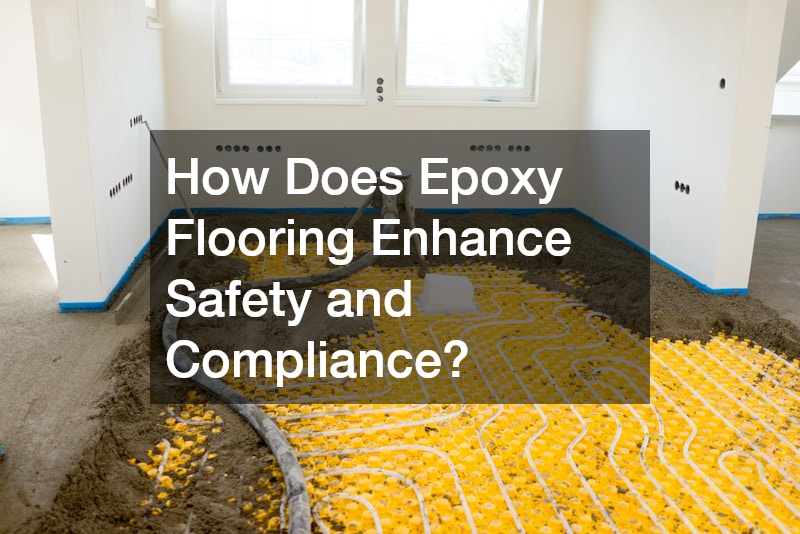What Are the Benefits of Pharmaceutical Epoxy Flooring?
Pharmaceutical epoxy flooring is a specialized flooring system designed for the unique demands of pharmaceutical manufacturing and laboratory environments. It is known for its ability to create a seamless, impermeable surface that can withstand harsh chemicals and heavy usage while maintaining a contaminant-free environment. In the pharmaceutical industry, where cleanliness and precision are paramount, epoxy flooring plays an essential role in meeting these stringent requirements.
Why Choose Epoxy Flooring for Pharmaceutical Facilities?
Durability and Longevity
Epoxy flooring is renowned for its durability, offering a long-lasting solution that can handle the rigorous demands of pharmaceutical facilities. Its resilience against wear and tear makes it ideal for areas with heavy equipment and constant foot traffic.
With epoxy, facilities can ensure a flooring solution that remains intact and efficient over many years, reducing the need for frequent repairs and replacements.
The longevity of epoxy flooring stems from its robust chemical composition, which allows it to resist physical impacts and maintain its integrity. This attribute is vital in pharmaceutical settings, where machinery is often moved or repositioned, risking floor damage. Furthermore, the long-term cost savings associated with epoxy flooring, thanks to its minimal maintenance and repair needs, make it a prudent investment for any pharmaceutical facility.
Ease of Maintenance
Pharmaceutical epoxy flooring is celebrated for its ease of maintenance, which greatly benefits pharmaceutical facilities by simplifying cleaning operations. The seamless surface prevents dirt, dust, and contaminants from getting trapped, making routine clean-ups more effective and less time-consuming. As a result, facilities experience a decrease in labor costs and resources dedicated to maintenance efforts.
The smooth, non-porous nature of epoxy floors makes them resistant to stains and spills, ensuring that even the toughest of pharmaceutical substances do not penetrate the surface. Regular cleaning agents suffice to maintain and sanitize the floor, further underscoring its cost-effectiveness. The flooring’s compatibility with various cleaning methods also allows for versatility in maintaining hygiene standards in sensitive environments.
Hazard Resistance
One of the most crucial benefits of epoxy flooring is its impressive resistance to chemicals and hazardous spills, which is essential for maintaining safety in pharmaceutical environments. The flooring offers a protective barrier that prevents harmful substances from seeping through, thereby controlling contamination risks. This resistance capability is indispensable when handling volatile or sensitive pharmaceutical compounds.
Epoxy’s chemical resistance ensures that neither the floor itself nor other critical components are compromised in the event of a spill. This attribute helps maintain the integrity of the pharmaceutical manufacturing process, preventing costly downtimes and potential hazards. The flooring’s ability to withstand such challenges speaks to its suitability for high-stakes environments where precision and safety are integral.
How Does Epoxy Flooring Enhance Safety and Compliance?
Non-Slip Surface
The non-slip properties of epoxy flooring significantly enhance safety, reducing the risk of accidents in the workplace. This feature is particularly beneficial in environments where spills and moisture are common, as it helps maintain traction for employees and equipment. By providing a safer surface, epoxy flooring contributes to a more secure working environment, thereby decreasing the likelihood of injuries.
These anti-slip characteristics are achieved through specialized coatings that can be added to the epoxy surface without compromising its durability or maintenance advantages. Facilities can customize their flooring according to specific safety requirements, ensuring optimal performance across different operational activities. This adaptability is integral to addressing diverse safety challenges encountered in pharmaceutical manufacturing settings.
Compliance with Industry Standards
In pharmaceutical facilities, compliance with industry standards is non-negotiable, and epoxy flooring helps ensure adherence to these regulations. Its hygienic and chemical-resistant properties meet stringent industry requirements, supporting GMP (Good Manufacturing Practice) protocols and other regulatory mandates. As such, epoxy flooring plays a vital role in minimizing regulatory risks and maintaining operational excellence.
Furthermore, pharmaceutical epoxy flooring is often crafted to meet specific fire safety, slip resistance, and cleanroom compatibility standards. By selecting epoxy, facilities can assure stakeholders of their commitment to providing a compliant and safe environment, crucial in an industry where precision, safety, and cleanliness are paramount. This compliance not only safeguards against legal issues but also reinforces brand integrity and reliability in the eyes of consumers.
Conclusion
In conclusion, pharmaceutical epoxy flooring offers a multitude of benefits that are crucial for maintaining efficient, safe, and compliant facilities. Its durability, ease of maintenance, and hazard resistance ensure the flooring remains resilient in demanding environments, while its non-slip surface and compliance with industry standards bolster safety and consistency. Furthermore, its environmental and health advantages highlight epoxy flooring as a forward-thinking and responsible choice for modern pharmaceutical applications.
.







